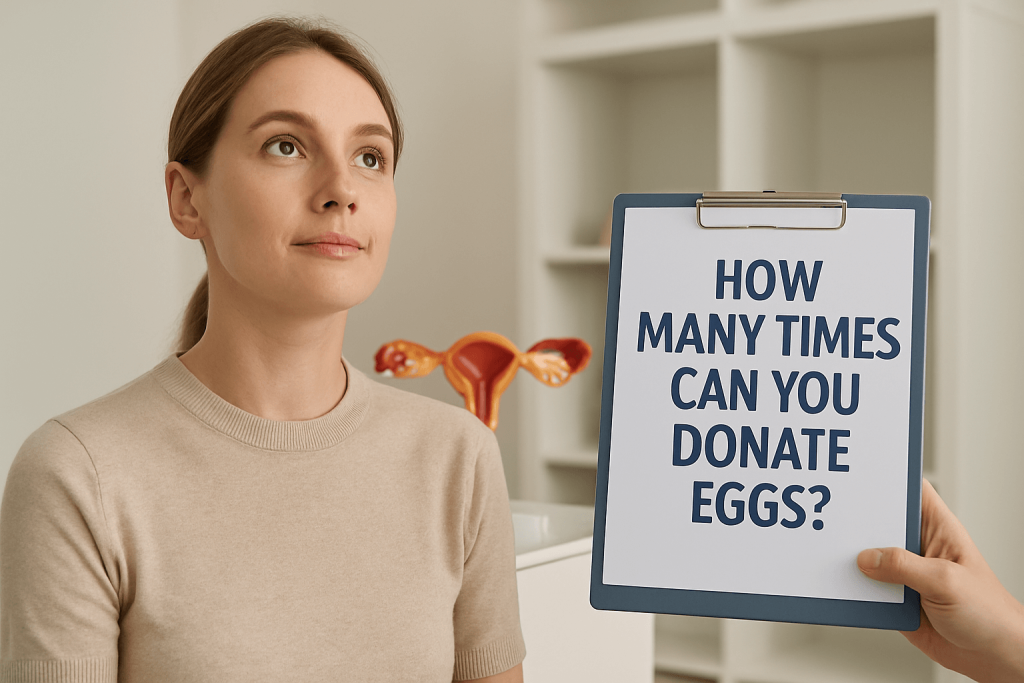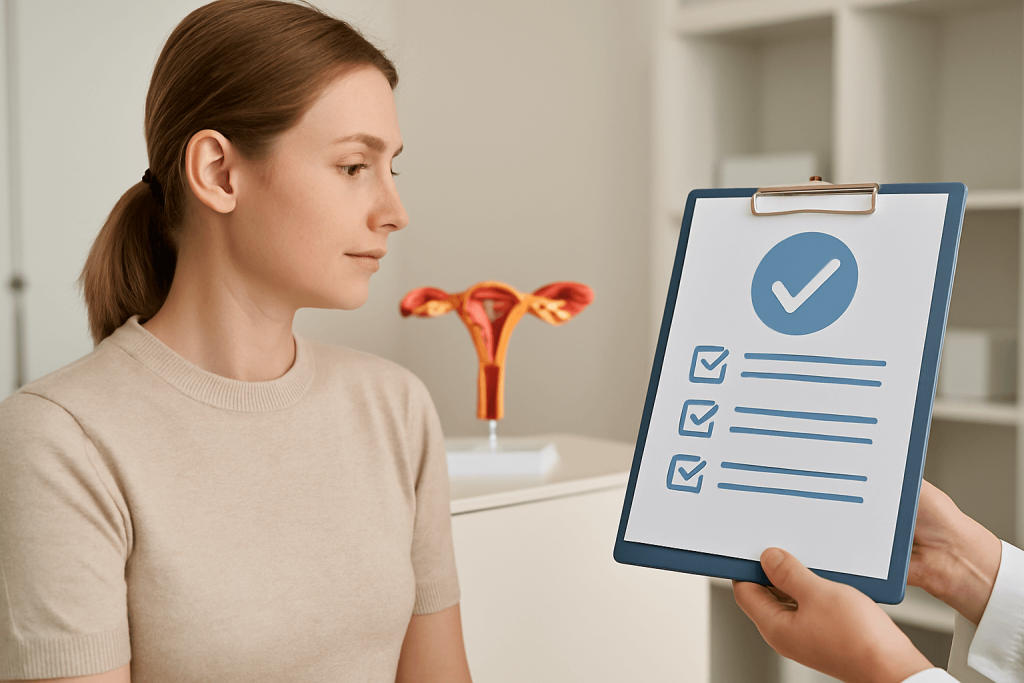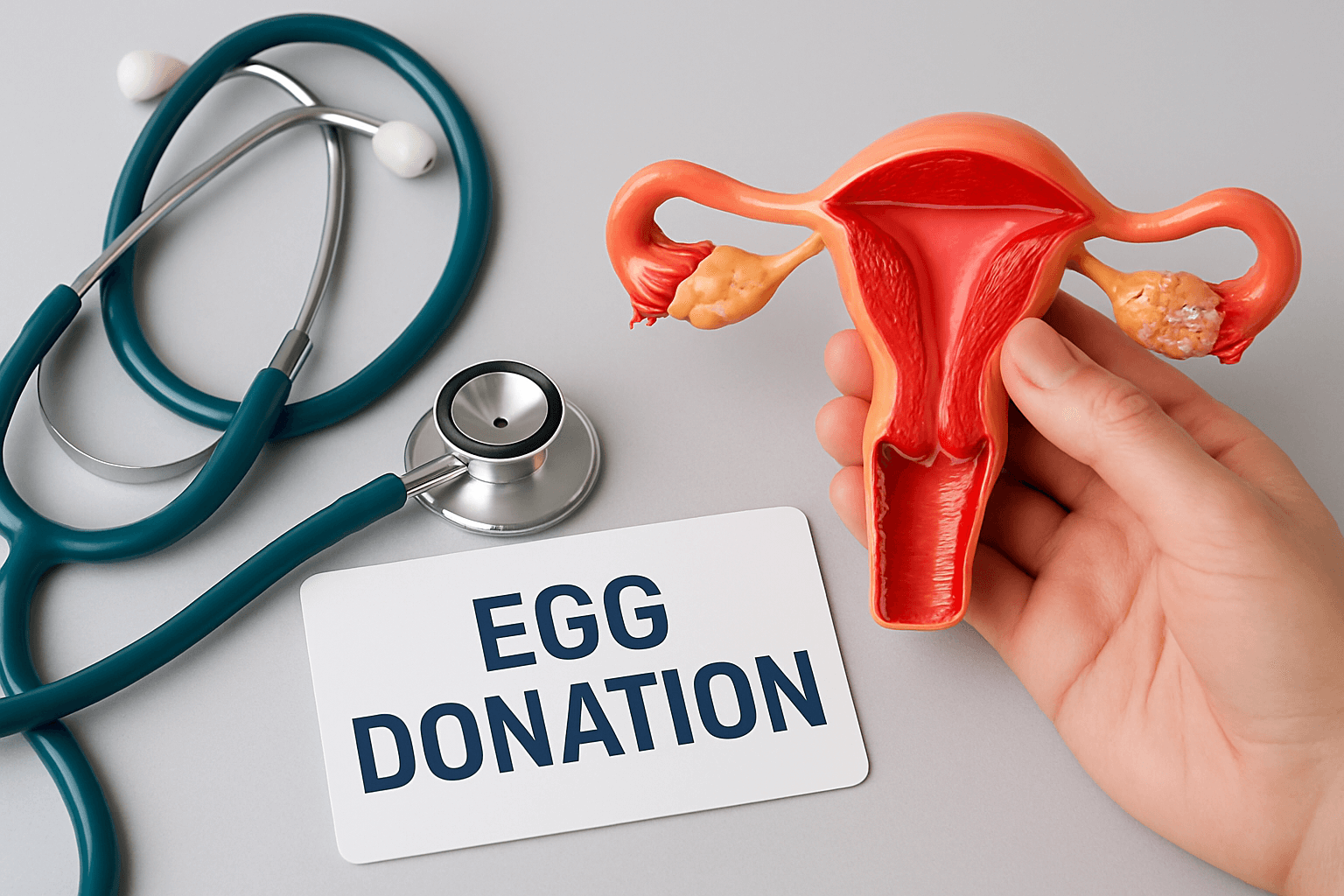I’m curious about how often you can donate eggs. Discover ASRM’s 6-cycle limit, become a donor, eligibility, and egg donor repeat.
Thinking of becoming an egg donor more than once? Consider the case that you have already passed the procedure, or you are thinking of becoming an egg donor. At that, it is crucial to realize the number of times a donor can undergo egg donation without putting herself in danger or jeopardizing the state of health.
The American Society of Reproductive Medicine (ASRM) provides open guidelines that are geared towards safeguarding the well-being of the donor and their health and emotional well-being. They advise donors to donate only 6 donation cycles in a lifetime.
This article will touch on the guidelines given by the ASRM regarding egg donation. The restriction of the eggs that are eligible to be donated will be justified, and the system for the choice of repeat donors will be specified.
Also, the health effects related to egg donation will be touched upon. We will offer you donor-friendly recommendations and expertise to aid in your decision-making concerning repeat egg donation.
How Many Times Can You Donate Eggs? ASRM Guidelines Explained

The American Society for Reproductive Medicine (ASRM) has recorded that a woman can give six times in her life her eggs. This upper limit of egg donation should keep the donor at a safe level and exercise ethics in the fertility business.
There are stricter criteria developed by some clinics and agencies, depending on your health conditions or the past donation results. This question ought to be directed to the clinic or the egg bank you wish to donate to.
Why Is There a Limit?
ASRM has capped six donations of eggs by a specific donor, and the reason behind this limit revolves around various decisive health and moral aspects. This is largely because of a single main reason, which is the safeguarding of the health of the donor in the long run.
Many repeated instances of hormone stimulation can be largely safe at low rates, but also increase the risk of ovarian hyperstimulation syndrome (OHSS), hormonal imbalances, or problems with surgery in case of overuse.
The other concern is the threat of consanguinity, which means the likelihood of too much descent from the same contributor who may have been at the same geographical location. Controlling the amount of donations minimizes the likelihood of random people crossing eyes and giving birth to a child, even without knowing that they are related, raising both moral and hereditary issues.
There are also legal and ethical consequences. Clinics have to make sure that no person will overuse or prey on the egg donors. Excessive donation can lead to doubts in terms of informed donation and checkups of the health of donors in the long run.
The boundary put in place by the ASRM is very concrete and highly desirable as it helps create an orderly and safe setting for donors and intended parents. Such a cut-off is a trade-off between what is optimal to the families involved and what is optimal to the donor.
Who Sets the Guidelines, and Are They Always Followed?
The practice of egg donation in the U.S. is regulated mainly by the American Society for Reproductive Medicine (ASRM).
Their suggestions combine medical research, professional consensus, and ethical values, serving as a guideline for fertility clinics nationwide. The ASRM procedures assist in safeguarding the well-being of the donor and fostering the ethics of assisted reproduction.
It should be noted that not every egg donation agency and less reputable clinics practice the application of such principles, as it is governed by the strict rule of six cycles according to ASRM, although there is a reputable fertility clinic that guarantees such.
The recommended giving should not exceed, in extraordinary circumstances, as a donor might be harming themselves by donating excessively, and this is also unethical. That’s why choosing a clinic that prioritizes safety and follows ASRM guidelines is critical.
Eligibility for Repeat Donation

Health screening criteria exist against which donors have to qualify to take part in a prospective second or subsequent egg donation process. The criteria of the following importance are the following:
- Age Range: The age limits of most clinics that accept repeat donors are typically 21 to 33 years, although there may be minor exceptions.
- Successful Prior Donation: Most clinics that accept repeat donors are normally 21 to 33 years old, but there might be slight exceptions
- Recovery Time Between Cycles: The time between donation cycles is typically 2 to 3 months, which is sufficient time for recovery.
- Medical Clearance: Repetitive donors are screened medically and psychologically each time they are out to ensure they are physically and emotionally sound and prepared.
- Hormonal Recovery Considerations: The break in between cycles lets your hormones stabilise, along with easing ovarian stress and the chances of conditions like ovarian hyperstimulation syndrome (OHSS).
- Clinic-Specific Policies: The requirements for repeat donation may vary by individual clinic, with more restrictive conditions, such as limits and wait times, depending on the previous cycle’s results.
Health Considerations: Is It Safe to Donate Eggs Multiple Times?
Egg donation is not entirely risk-free when performed multiple times; however, it is hypothesised to be safe with the guidance of an experienced medical professional. The Ovarian Hyperstimulation Syndrome (OHSS) is among the main risks since it appears when the ovaries undergo an overreactive reaction to fertility medicines, leading to swelling and pain.
Even though OHSS can develop in some extreme cases, the clinics give the utmost regard to the donors to minimize this risk. There are also possible surgical-related complications in the egg retrieval process that could involve infection or bleeding, but this is uncommon when the practitioners are experienced.
There are quite a lot of myths that suggest egg donation damages fertility in the future, but research demonstrates the opposite. Research shows that there is no long-lasting effect on a woman’s fertility in natural conceptions following cycles of donation.
According to fertility specialist Dr. Emily Carter, repeat egg donation should not be a concern provided the process is taken responsibly by donors and must not appear to impact the future fertility or cumulative fertility of a donor. Leading up to each donation, you must talk to your clinic and undergo health screenings to address your concerns. Some of the methods through which repeat donation is made viable and safe include adherence to guidelines and enough time to enable the body to recover.
Real Donor Experiences
Anonymous, one of the repeat donors (whom we will refer to as Anna to protect her identity), described her experience to illustrate the physical and emotional aspects of egg donation (this is an imaginary story, used as an example). Anna chose to be an egg donor three times in 5 years.
She has reported that it was physically manageable with few side effects, including bloating and fatigue, but these were always temporary.
She was also emotionally satisfied, as she was aware that her donations could benefit families who struggled to conceive. She experienced both hope and nervousness before each cycle, but then the medical personnel supporting her helped settle her anxieties.
Anna has insisted on diligent health screenings and truthful interactions with her care team, which contributed to her gaining trust in the procedure. Her story is a balance of physical difficulties and emotional fulfilment that has her love the commitment of the repeat donors so much more.
Potential donors may become more knowledgeable about the process with tales of people such as Anna which will motivate them to have trust and be compassionate in their involvement in the egg donation program.
Can You Donate at Different Clinics or Banks?
Donors are ethically obligated and often required to disclose prior donations, especially when applying to different clinics or banks. This exposure makes them safe and enables clinics in identifying any risk as in ovarian hyperstimulation. Most national registries/ egg banks follow the history of the donors and limit the number of donations to reduce excessive cycles.
Lack of information on prior contribution tcan increase health risks and lead to disqualification. Therefore, honesty toward any past donation turns out to be a crucial factor in sustaining health and meeting all the standards of the different clinics or banks.
FAQs
How soon can I donate eggs again?
As a general rule, there are 2-3 months between donation cycles or periods, which should allow your body enough time to recover from the effects of hormone stimulation.
Can I donate eggs 7 or more times?
No, the ASRM guidelines restrict egg donation to just six cycles to safeguard your well-being and guarantee an ethical reproductive process.
Does donating affect my ability to have children later?
Generally, the practice of donating eggs does not make you infertile: the vast majority of donors have children of their own, with no problems associated with fertility.
Is egg donation painful or dangerous?
The surgery is mostly predictable. It is found to produce mild pain, and in fact, serious risks are uncommon when medical assistance and observation are provided.
Can I stay anonymous as a repeat donor?
Anonymity is possible, yes, based on the program. But with genetic testing and an open-donor registry, it may be hard to ensure complete anonymity in the future.
Conclusion
The ASRM six-cycle limit in egg donation exists for your health and safety. When considering donating eggs, understanding the remainder is essential, as it is necessary to know about eligibility, health risks, and recovery conditions.
Nevertheless, it is always better to select a reputable clinic with accreditation from ASRM. Contact our fertility experts to discuss your options today or learn more about how you can help us contribute to a great cause.
Also Check: Egg Freezing

